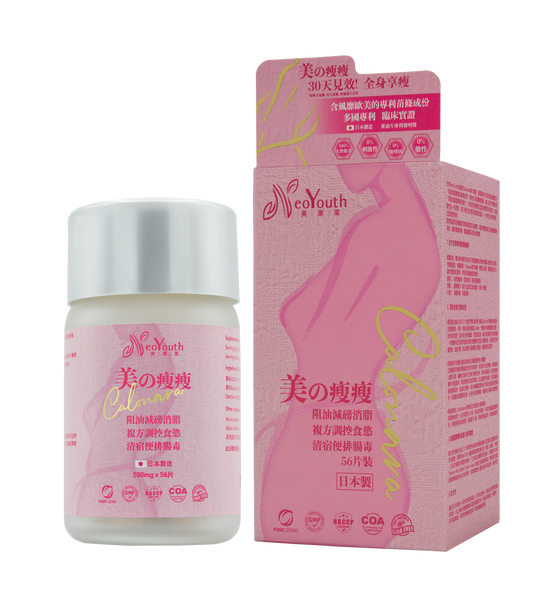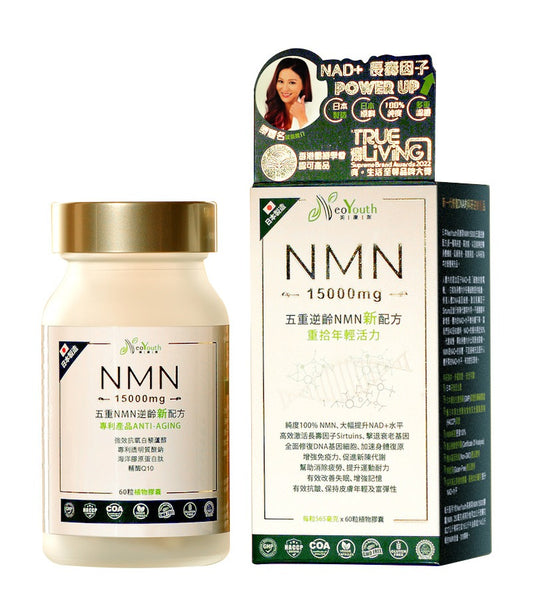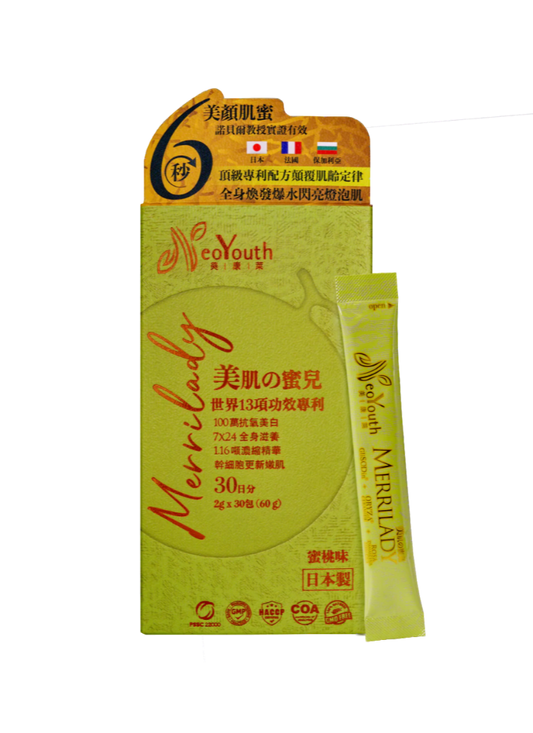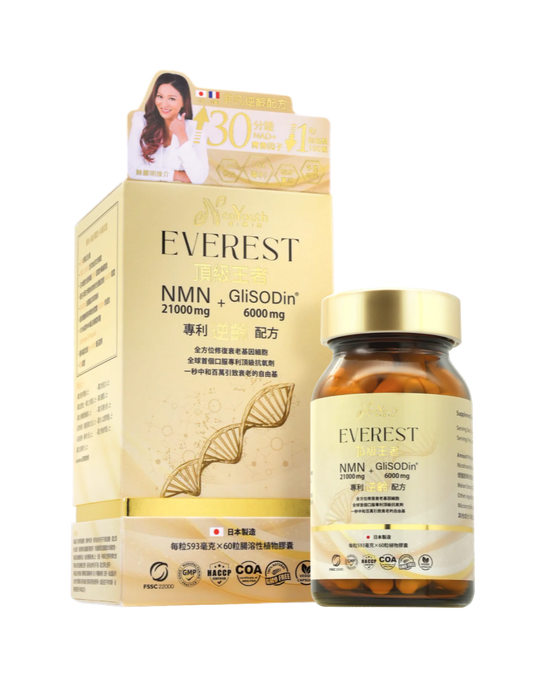As women approach 40 to 55 years old, they face a significant turning point in their lives—menopause. This not only brings physiological changes but also affects their mental well-being. Around menopause, a woman's bodily functions gradually decline. During this period, a proper diet and lifestyle are crucial for alleviating menopausal symptoms and improving quality of life. Women can also obtain sufficient nutrition through menopausal supplements.
Definition of menopausal syndrome
Menopausal syndrome refers to a series of physiological and psychological symptoms experienced by women during menopause (the end of menstruation) due to declining ovarian function and estrogen levels. The duration of menopausal syndrome symptoms varies from person to person, ranging from several months to several years, and the severity of symptoms is closely related to factors such as the patient's sensitivity to hormonal changes, life stress, and health status.
What are the symptoms of menopausal syndrome?
Women typically enter menopause between the ages of 45 and 55, but modern lifestyles with irregular schedules, frequent late nights, and high stress levels cause some women to experience menopausal symptoms earlier, even after the age of 40. Menopausal syndrome symptoms encompass a range of physical and emotional symptoms caused by a decrease in hormones:
Menopausal symptoms
1. Vasomotor symptoms
- Hot flashes: Sudden onset of upper body heat and facial flushing, accompanied by profuse sweating, lasting from a few seconds to a few minutes, and may occur frequently, affecting sleep and daily life.
- Night sweats: Sudden, excessive sweating during sleep, leading to sleep disruption or insomnia.
2. Changes in menstruation and the reproductive system
- Menstrual disorders: irregular cycles (such as prolonged or shortened periods, increased or decreased menstrual flow), eventually leading to amenorrhea.
- Vaginal dryness and painful intercourse: Decreased estrogen levels lead to thinning of the vaginal mucosa and reduced elasticity, which may cause discomfort during intercourse or recurrent urinary tract infections.
3. Bone and muscle problems
- Osteoporosis: Decreased estrogen levels accelerate bone loss and increase the risk of fractures (especially in the hip and spine).
- Joint pain and muscle soreness: commonly seen in the knees, shoulders, neck, and other areas, possibly related to collagen loss and increased inflammatory factors.
4. Urinary system symptoms
- Frequent urination, urgency, or incontinence: Atrophy of the urethral mucosa leads to decreased bladder control, making stress urinary incontinence more likely.
5. Other physical symptoms
- Headache and dizziness may be related to abnormal vasomotor function or lack of sleep.
- Dry skin and hair loss: Decreased estrogen levels affect collagen synthesis in the skin and the health of hair follicles.
- Weight gain: Metabolic rate decreases, and fat tends to accumulate in the abdomen.
Menopausal syndrome mood symptoms
The emotional symptoms of menopause include:
1. Mood fluctuations and anxiety
- Irritability and mood swings, possibly feeling annoyed or sad over trivial matters, are related to hormonal fluctuations and lack of sleep.
- Increased anxiety makes one more prone to feeling uneasy or fearful about the future.
2. Depressive tendencies
- Low mood and loss of interest may occur, and in severe cases, it may develop into clinical depression, requiring professional psychological treatment.
3. Changes in cognitive function
- Memory decline: Short-term memory declines, and you often forget trivial things.
- Lack of concentration: Difficulty focusing on work or daily life, which may affect work efficiency.
4. Sleep disorders
- Insomnia or difficulty falling asleep, light sleep or early awakening, often coexist with hot flashes, night sweats or anxiety.
Methods to relieve and improve menopausal symptoms
To improve menopausal symptoms, in addition to lifestyle modifications such as a balanced diet and moderate exercise, some women may require medication, such as antidepressants, sedatives, and estrogen replacement therapy, depending on their individual circumstances. Patients can try to improve their condition in the following two ways:
I. Non-drug relief methods (natural therapies)
1. Adjust your diet
- Increase calcium and vitamin D intake to prevent osteoporosis, such as from milk, yogurt, dark green vegetables, and salmon, and get moderate sun exposure (15 minutes a day).
- Phytoestrogens: Consuming soy products (tofu, miso), flaxseed, and chia seeds may help alleviate hot flashes due to their isoflavone content.
- Avoid irritating foods: Reduce caffeine, alcohol, and spicy foods to decrease the frequency of hot flashes and night sweats.
2. Regular exercise
- Aerobic exercise, such as brisk walking or swimming, for 150 minutes per week, can improve cardiovascular health and mood.
- Strength training: Resistance exercises (such as dumbbells and resistance bands) can increase bone density and reduce the risk of fractures.
- Yoga or stretching exercises: relieve joint pain, and deep breathing can reduce anxiety.
3. Sleep Management
- Maintain a regular sleep schedule, avoid using electronic devices before bed, and consider combining this with meditation or a warm bath to improve sleep quality.
II. Medical Treatment
1. Hormone Replacement Therapy (HRT)
- Estrogen monotherapy (for women who have had a hysterectomy) or estrogen combined with progesterone therapy (for women with an intact uterus, this combination is necessary to mitigate cancer risk) is suitable for women with moderate to severe symptoms (such as frequent hot flashes, severe osteoporosis) and no contraindications (such as breast cancer, history of thrombosis).
2. Non-hormonal drugs
- Antidepressants: Low-dose SSRIs (such as escitalopram) can relieve hot flashes and mood symptoms (FDA approved).
- Osteoporosis medications: bisphosphonates (such as Alendronate) or selective estrogen receptor modulators (SERMs).
3. Local treatment
- Vaginal estrogen: creams, suppositories, or rings improve vaginal dryness and painful intercourse; systemic absorption is low, and safety is relatively high.
What are the early signs of menopause?
Menopausal symptoms can begin as early as 5 years before menopause. Due to the gradual decrease in estrogen and progesterone, ovulation and menstruation become irregular, and women may experience changes in their menstrual cycle. Symptoms can last up to 10 years. Understanding the physical changes that occur in the lead-up to menopause can help women better prepare for and navigate this physiological stage.
Early signs of menopause include:
- Prolonged menstrual cycle
- Irregular menstrual cycle
- Shortened or prolonged menstrual period
- Decreased/increased menstrual flow
- sudden amenorrhea
As these early signs gradually disappear, if a woman does not menstruate for 12 consecutive months, her estrogen and progesterone levels will further decline, and menopausal symptoms will gradually ease and eventually disappear. This stage can last for more than 10 years, but it usually disappears gradually within 3 to 5 years.
Diet and supplements for menopause
During menopause, women should maintain a balanced diet to alleviate various discomfort symptoms. It is recommended to consume a variety of colorful vegetables, legumes, fruits (preferably eaten whole), protein (lean meat, poultry, seafood, soy products, and nuts), whole grains, and unsweetened dairy products. In addition, the intake of healthy fats should not be neglected; olive oil and avocados are good choices.
At the same time, it is important to limit or avoid excessive intake of sugar, saturated fat, trans fat, sodium, and alcohol. These dietary principles help maintain the overall health of menopausal women and alleviate some common menopausal symptoms.
In addition, for women experiencing menopausal symptoms such as general discomfort, they can supplement their nutrition through menopausal health supplements. These include soy isoflavones, DHEA (dehydroepiandrosterone), Omega-3 fatty acids, calcium and magnesium supplements, vitamins D and E, and resveratrol, among others.
NeoYouth Meikanglai Five-Fold NMN Anti-Aging Formula
NeoYouth's five-fold NMN anti-aging formula, developed by Meikanglai, contains 60 capsules per box. Each capsule contains 450 mg of the main ingredient, including 250 mg of NMN, plus 50 mg of resveratrol and three other ingredients. Resveratrol has anti-inflammatory and antioxidant effects, helping menopausal women combat aging, reducing wrinkles, fading melanin, promoting hyaluronic acid and collagen production, and relieving inflammation, helping you regain youthful vitality from the inside out. This formula also provides multiple layers of protection for cell membranes, proteins, and DNA, preventing damage from free radicals that can lead to abnormal cell function and apoptosis. Additionally, the formula includes mood-soothing ingredients to help women cope with menopausal mood swings.
Meikanglai's latest non-drug menopause supplement, Everest Premium NMN 21,000 mg + GliSODin®️ 6,000 mg , effectively resists radiation, repairs DNA damage, and safely improves physiological reversal. It is an essential and highly effective element for modern anti-aging, effectively resisting the loss and damage to human functions caused by aging and oxidation, rejuvenating youthful vitality from the cellular level, and bidding farewell to menopausal symptoms such as general discomfort.





